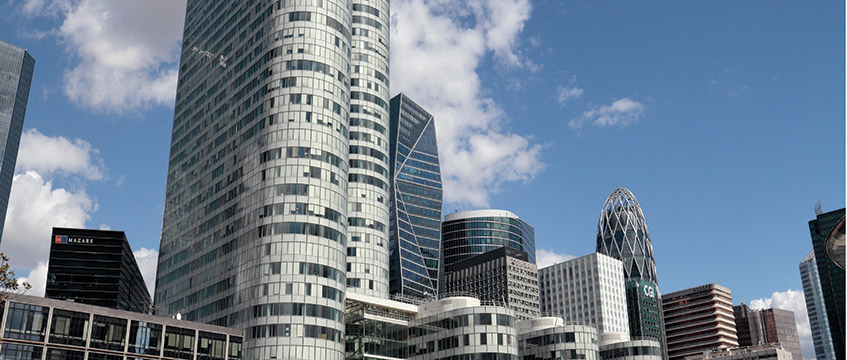The coronavirus pandemic could cause more damage to the occupier market for European offices than the global financial crisis of a decade ago.
That was the worst-case scenario painted by analysts at UBS Asset Management in a new note on Covid-19 and European offices.
A V-shaped economic recovery after the pandemic ends could mean that companies “weather the storm” with headcounts intact, UBS said, in which case a slowdown in the occupier market should be less than either the financial crisis or dotcom crash.
“But sadly, we cannot deny that the risks lie heavily to the downside,” it added. “The disruption can only continue for a relatively short amount of time before we start to see significant office-based job losses.
“Unfortunately, if things are not able to return to normal, the damage done to corporate office occupiers may be even more severe than the financial crisis. We are likely to see a spike in insolvencies, while many companies which do survive will need to trim their workforce to balance out lower revenues. This would lead to an abundance of overcapacity, and over time, further space being returned to the market as lease events allow.”
In city centres, UBS expected business services sectors such as accountants, lawyers and consultants to be the most defensive occupier markets, given that such firms “will be in high demand as this crisis unfolds”. Financial firms would be more exposed, the firm added, with pressure on investment banking fees from work such as M&A and stock market listings.
Demand from technology companies would be a “mixed bag”, UBS predicted. “This has been a key area of growth for many European markets in recent years, and that growth is likely to tail off for the short term at least,” it said, although the risks of job losses and industry consolidation were “less significant than other sectors”.
Away from city centres, occupiers that have made their homes in out-of-town or secondary markets could find changes in demand are “disproportionately felt”, UBS said.
“This is particularly the case if an occupier is a key employer in a relatively small office market,” the note said. “Examples here would be the British Airways HQ at Heathrow Airport and the Airbus HQ in Toulouse. On the flip side, pharmaceutical companies also tend to cluster around research hubs – Cambridge would be such an example of a location which may prove resilient in the short term.”
To send feedback, e-mail tim.burke@egi.co.uk or tweet @_tim_burke or @estatesgazette











